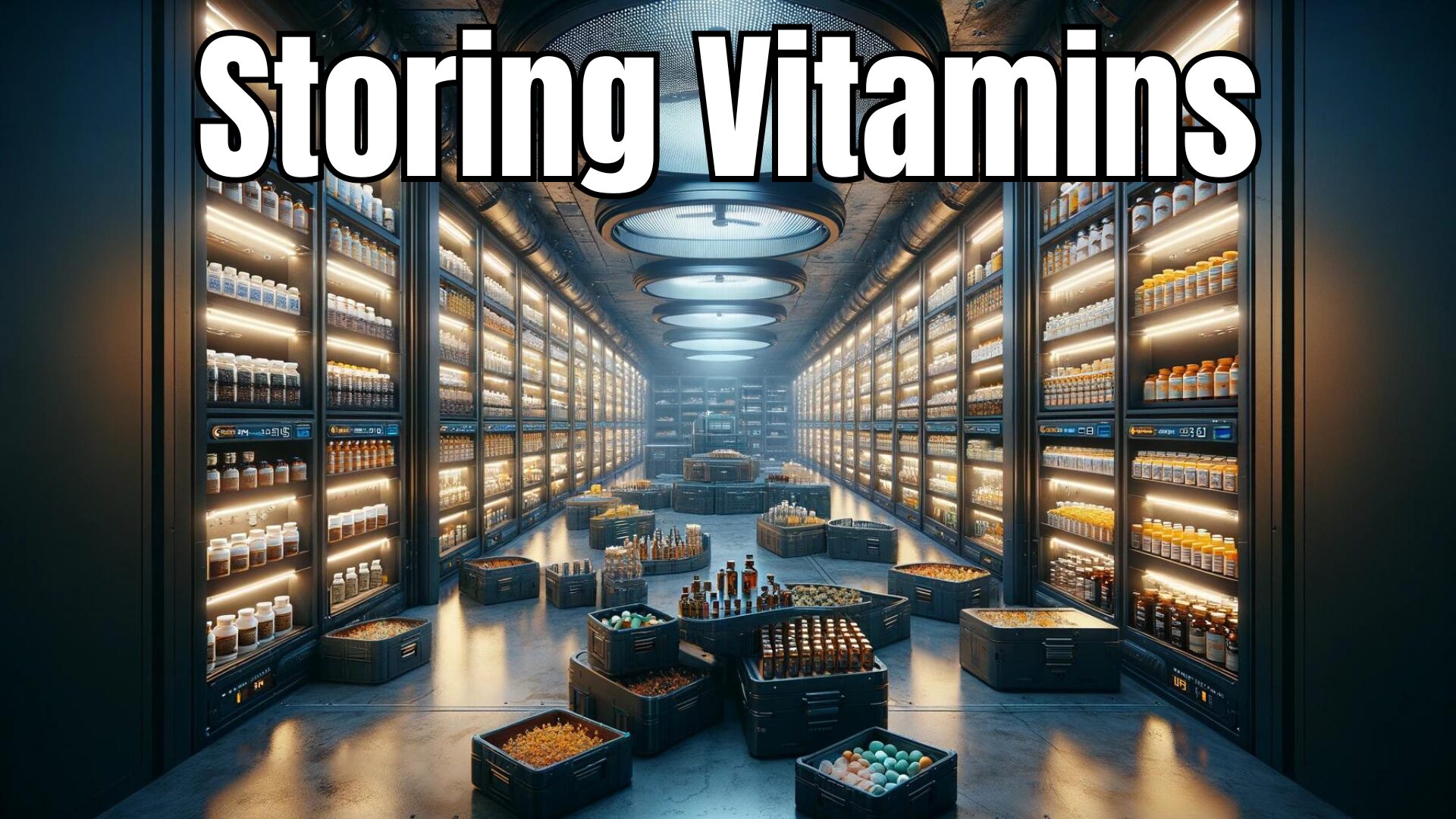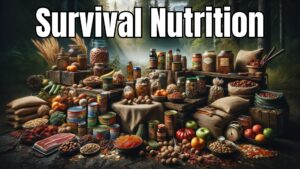Ever thought about the silent heroes of your emergency kit?
Vitamins, with their quiet potency and crucial role in keeping us healthy, deserve a spotlight in your survival strategy.
Let’s dive into making them last.
Table of Contents
Key Takeways:
- Storage Conditions Matter: Vitamins retain their potency longer when stored in cool, dry, and dark conditions, away from heat, light, and humidity.
- Form and Type Are Key: Opt for vitamins in tablet or powder form without additives for extended shelf life, and be aware of the specific storage needs of different vitamin types.
- Oxygen Absorbers Enhance Shelf Life: Utilizing oxygen absorbers in your storage strategy can significantly prolong the shelf life of vitamins by creating an environment less conducive to degradation.
Essential Vitamins for Survival and Their Shelf Life
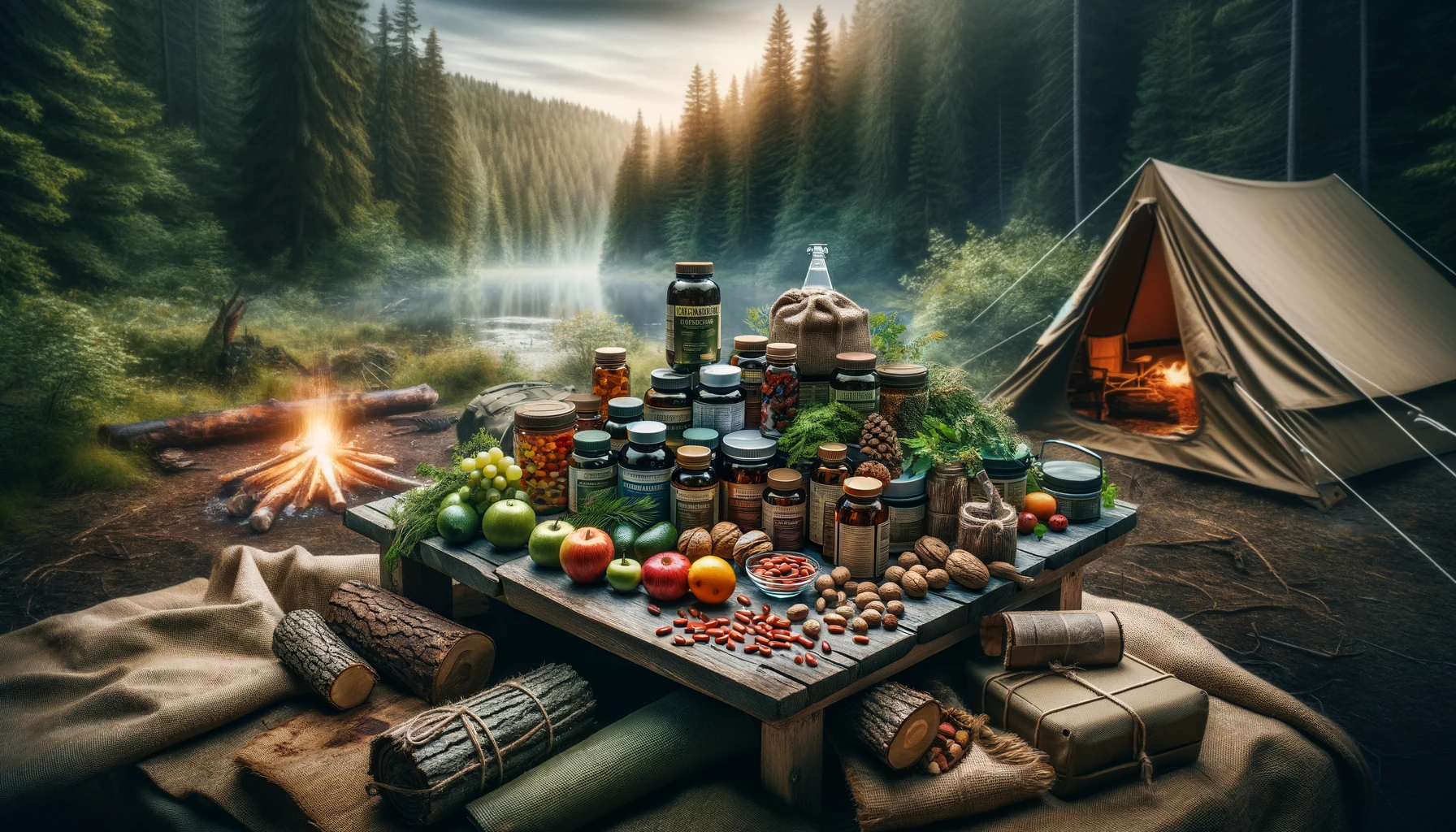
Understanding Vitamin Shelf Life
Storing vitamins properly is crucial for their effectiveness in sustaining us during an emergency.
When it comes to long-term food storage, knowing the shelf life of your supplements is key.
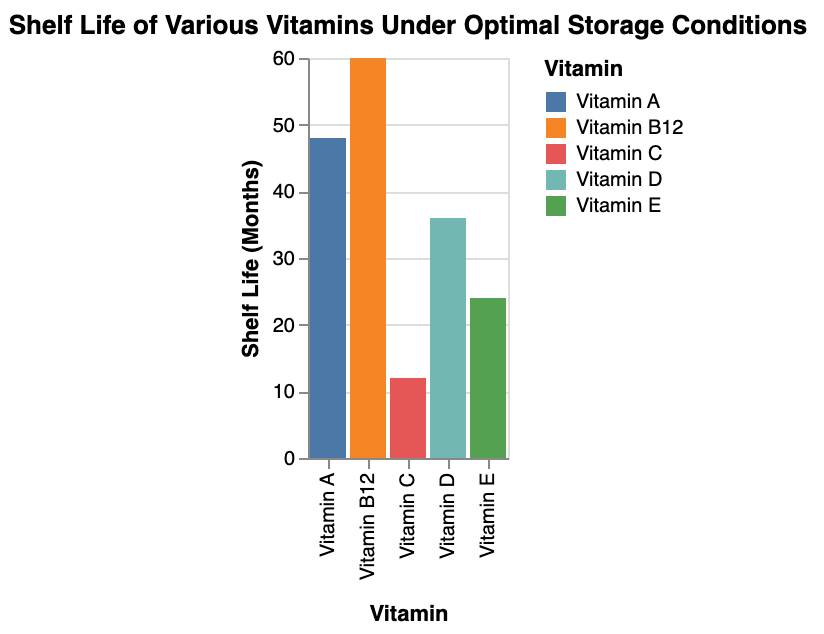
Vitamin C, for example, tends to degrade faster than other vitamins, so it’s vital to be mindful of its shelf life.
I suggest rotating your supplements regularly to ensure you always have potent vitamins in your food supply.
| Vitamin | Shelf Life | Storage Tips |
|---|---|---|
| Vitamin A | 2-3 years | Store in a cool, dark place away from sunlight |
| Vitamin B12 | 2-3 years | Keep tightly sealed in its original container |
| Vitamin C | 1-2 years | Store in a cool, dark place away from heat and moisture |
| Vitamin D | 2-3 years | Keep in a tightly closed container away from sunlight |
| Vitamin E | 2-3 years | Store in a cool, dark place away from heat and light |
| Vitamin K | 2-3 years | Keep in a cool, dry place away from direct sunlight |
Tips to Preserve Vitamin Potency
To make the most of your vitamins in long-term food storage, here are some simple steps to follow:
- Keep vitamins in a cool, dark place away from sunlight and humidity.
- Check the expiration dates regularly and replace any expired supplements.
- Consider vacuum sealing your supplements for extended shelf life.
- Be cautious of temperature fluctuations as they can affect the potency of your vitamins.
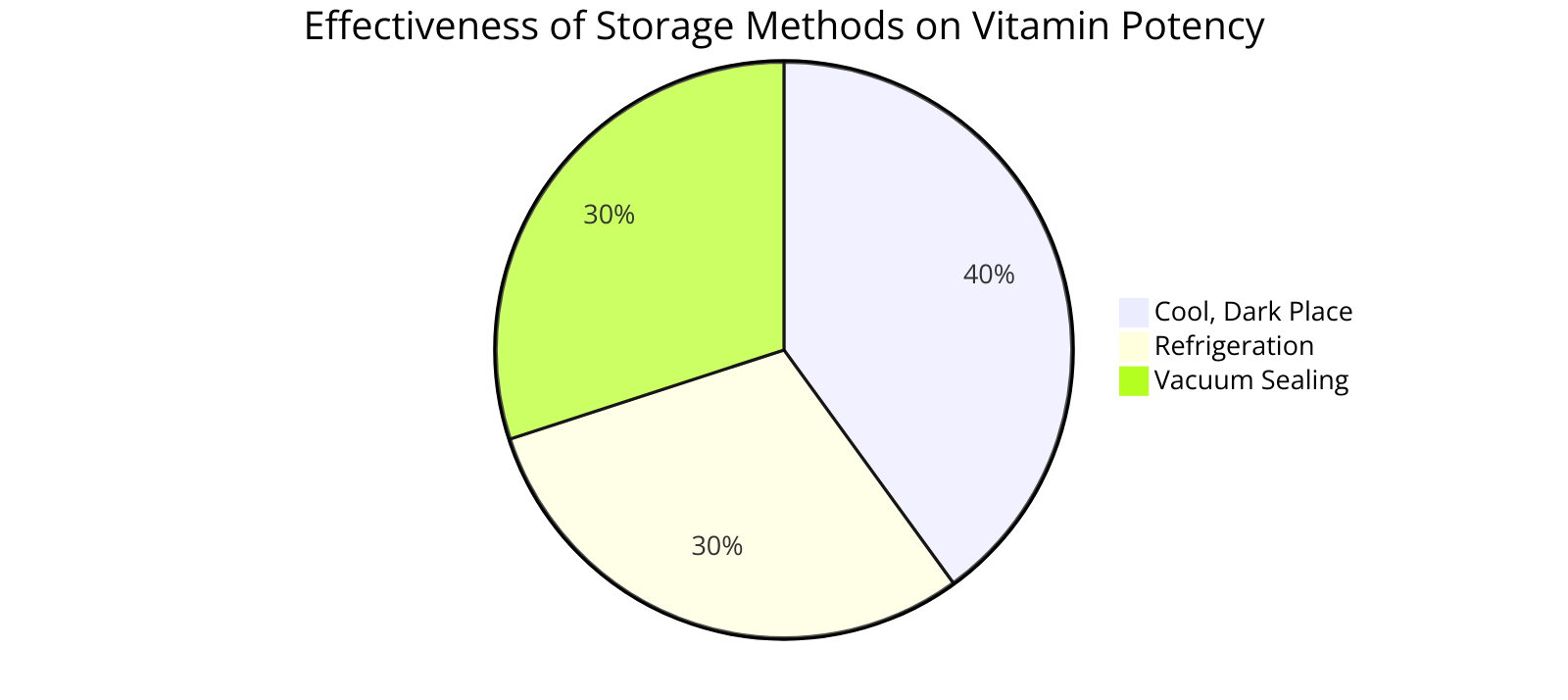
Optimal Storage Conditions for Vitamin Potency Preservation

Storing Emergency Food and Vitamins
When prepping your emergency food supplies, it’s crucial to consider the shelf life and potency of vitamins and minerals.
To ensure long-lasting potency, store your emergency food in a cool, dry place away from direct sunlight.
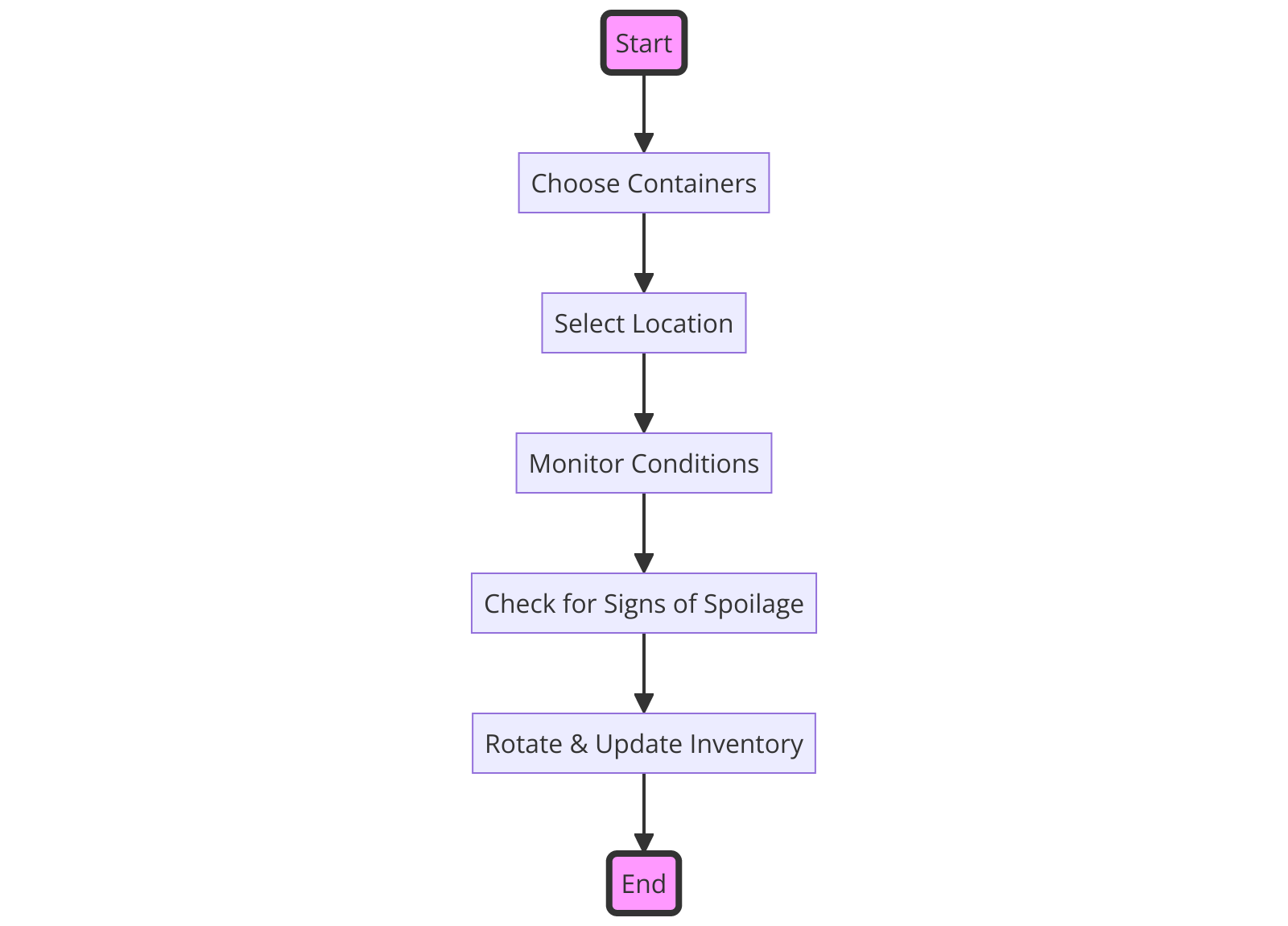
Opt for airtight containers to prevent moisture from affecting the shelf life of your supplies.
| Vitamin Type | Storage Condition | Shelf Life |
|---|---|---|
| Powdered Vitamins | Cool and Dry | 2-3 years |
| Humid and Warm | 6-12 months | |
| Whole-Food Vitamins | Cool and Dry | 3-4 years |
| Humid and Warm | 1-2 years |
Best Practices for Storing Powdered and Vegetable-Based Vitamins
When it comes to storing powdered vitamins or vegetable-based supplements, sealing them in airtight containers or heavy-duty plastic bags can help preserve their potency.
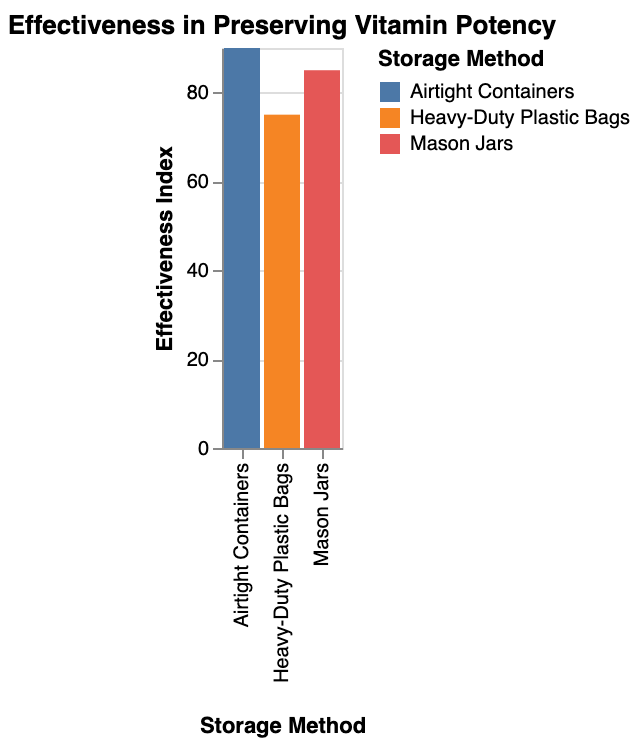
For beans and nuts, opt for vacuum-sealed bags or Mason jars to extend their storage life.
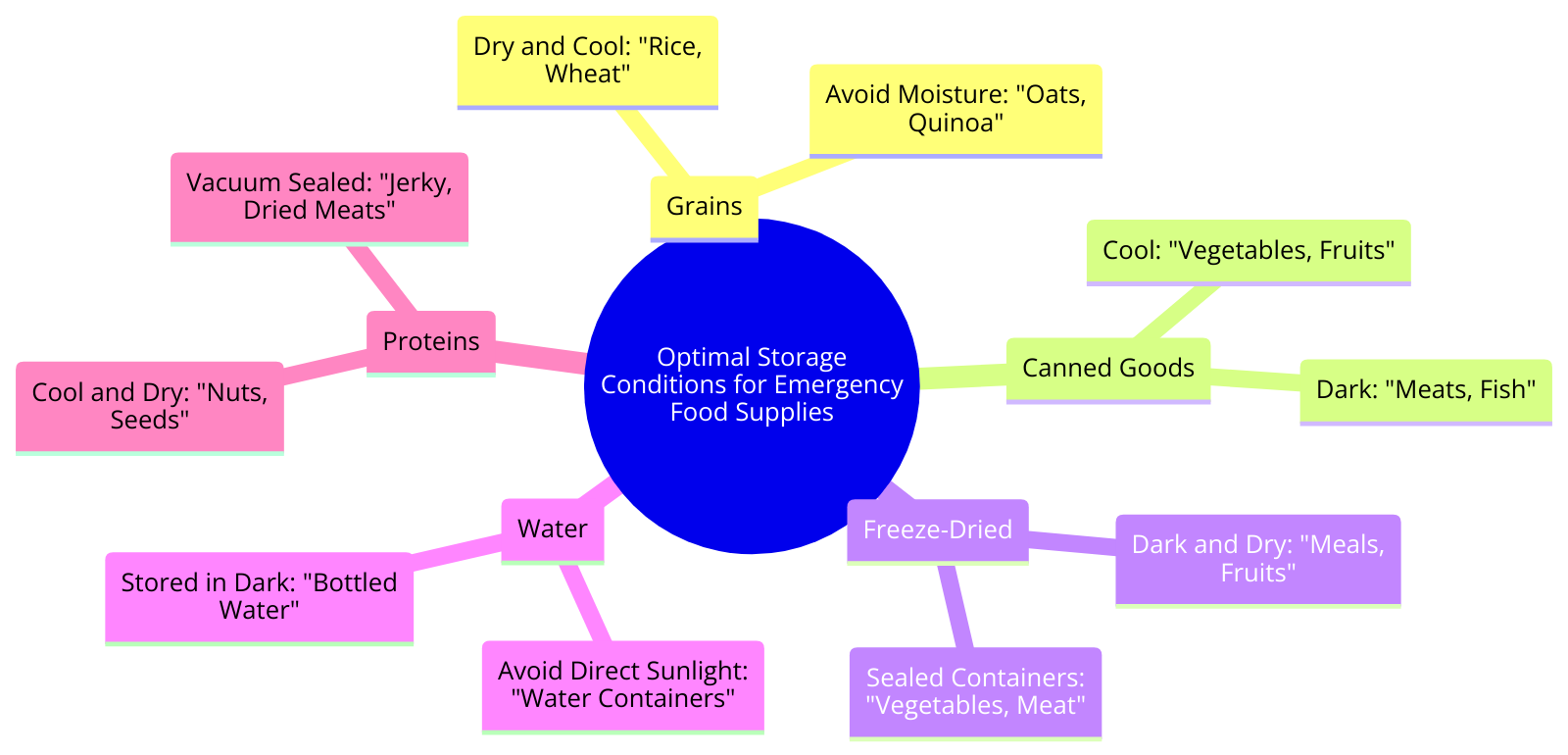
Don’t forget to label your containers with the date of purchase to keep track of the vitamin expiration dates.
Long-Term Food Storage: Integrating Vitamins and Minerals
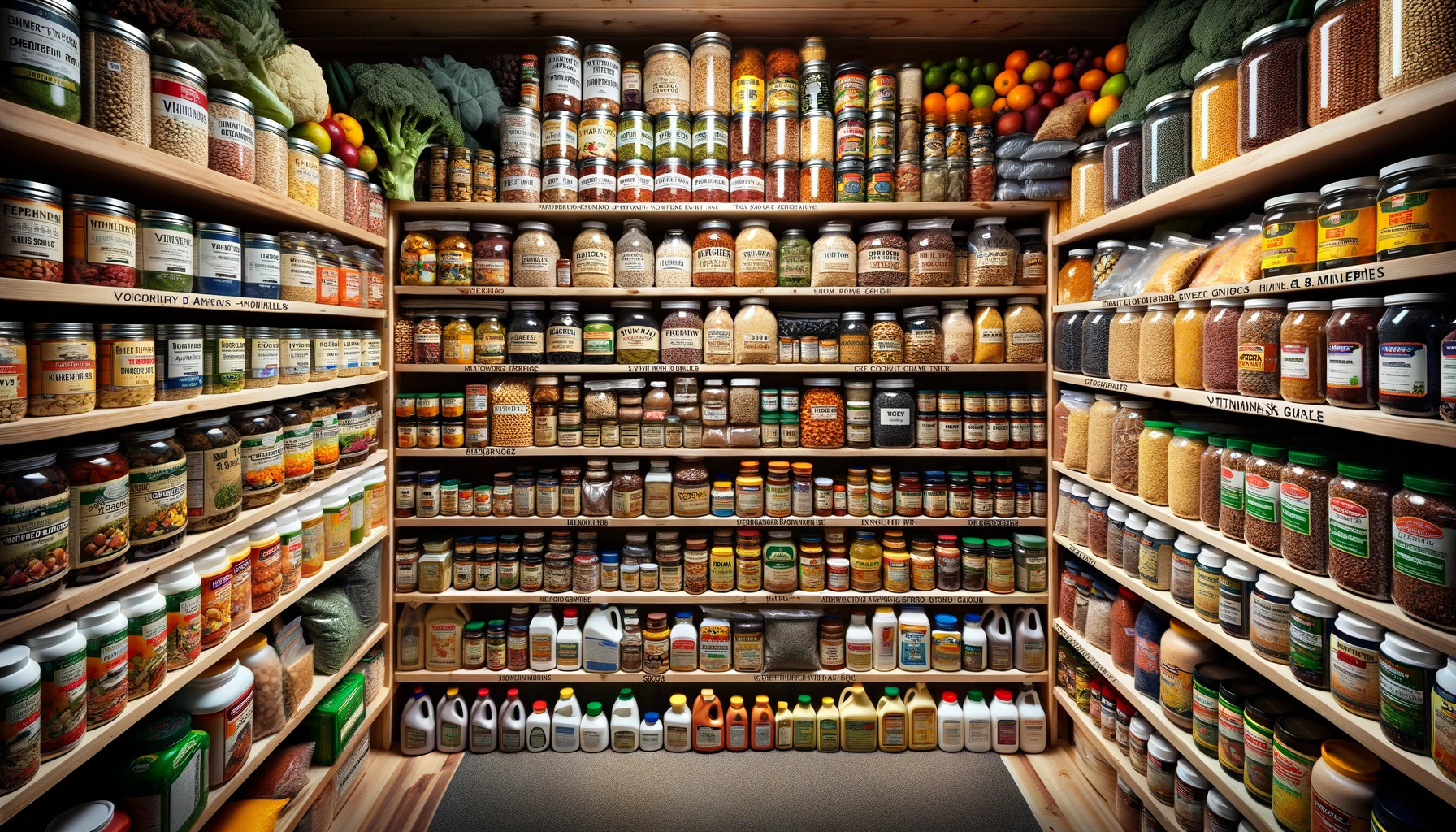
The Importance of Vitamins in Your Survival Food Supply
Ensuring adequate nutrient intake is crucial during emergencies to prevent nutritional deficiencies.
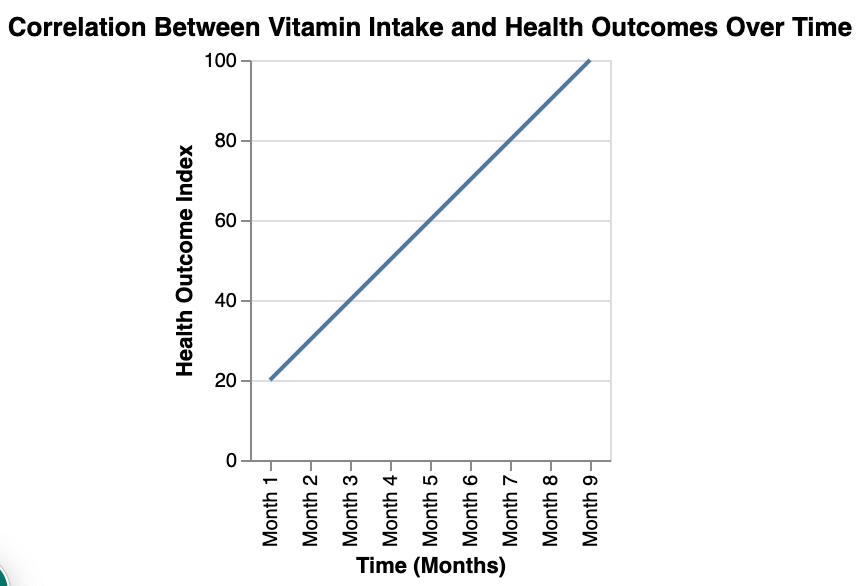
It’s a good idea to store vitamins with long shelf-life in mylar bags to maintain their potency.
Consider including powdered forms of pea-derived vitamins to easily consume them in various situations.
Maximizing the Shelf-Life of Vitamin Supplements
To store vitamins long term, opt for mylar bags with oxygen absorbers to protect them from moisture and air.
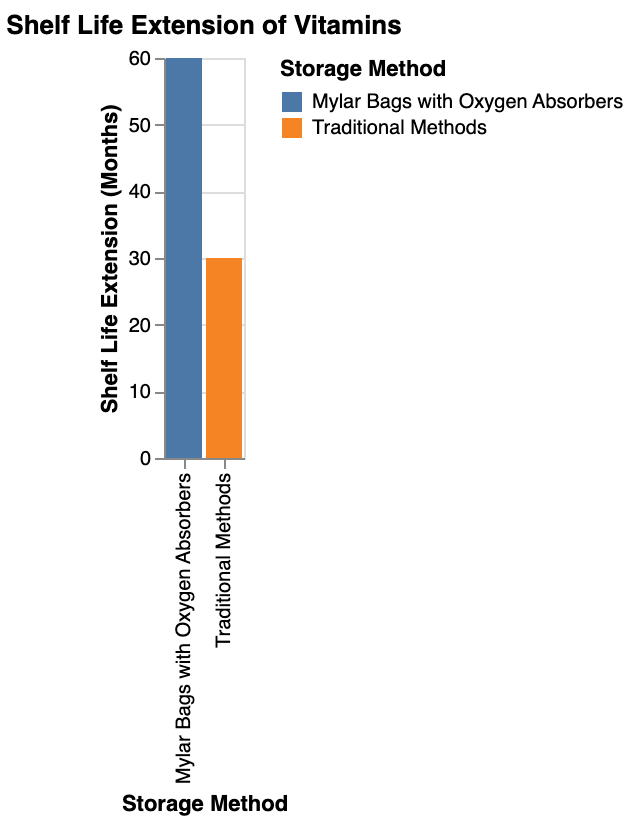
Make sure your vitamins last by rotating them regularly and checking expiration dates.
Consider the shelf-life of vitamin supplements to plan ahead for your nutritional needs.
The Role of Vitamin C in Emergency Food Supplies
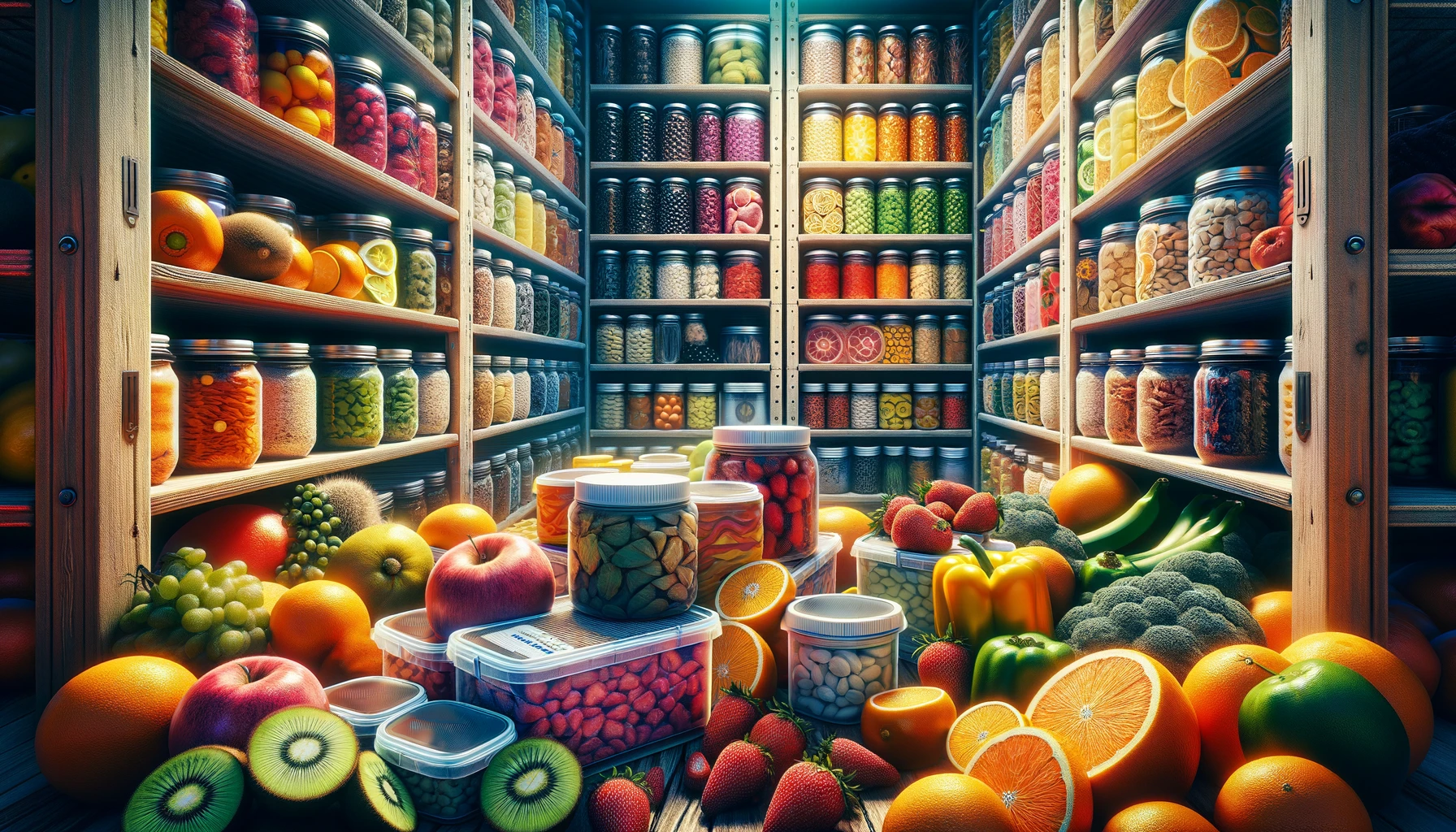
Importance of Vitamin C in Long-Term Storage
When thinking about emergency food supplies, you may wonder about the shelf life of vitamin and nutritional supplements.
The usable shelf life of vitamin C is a vital consideration.
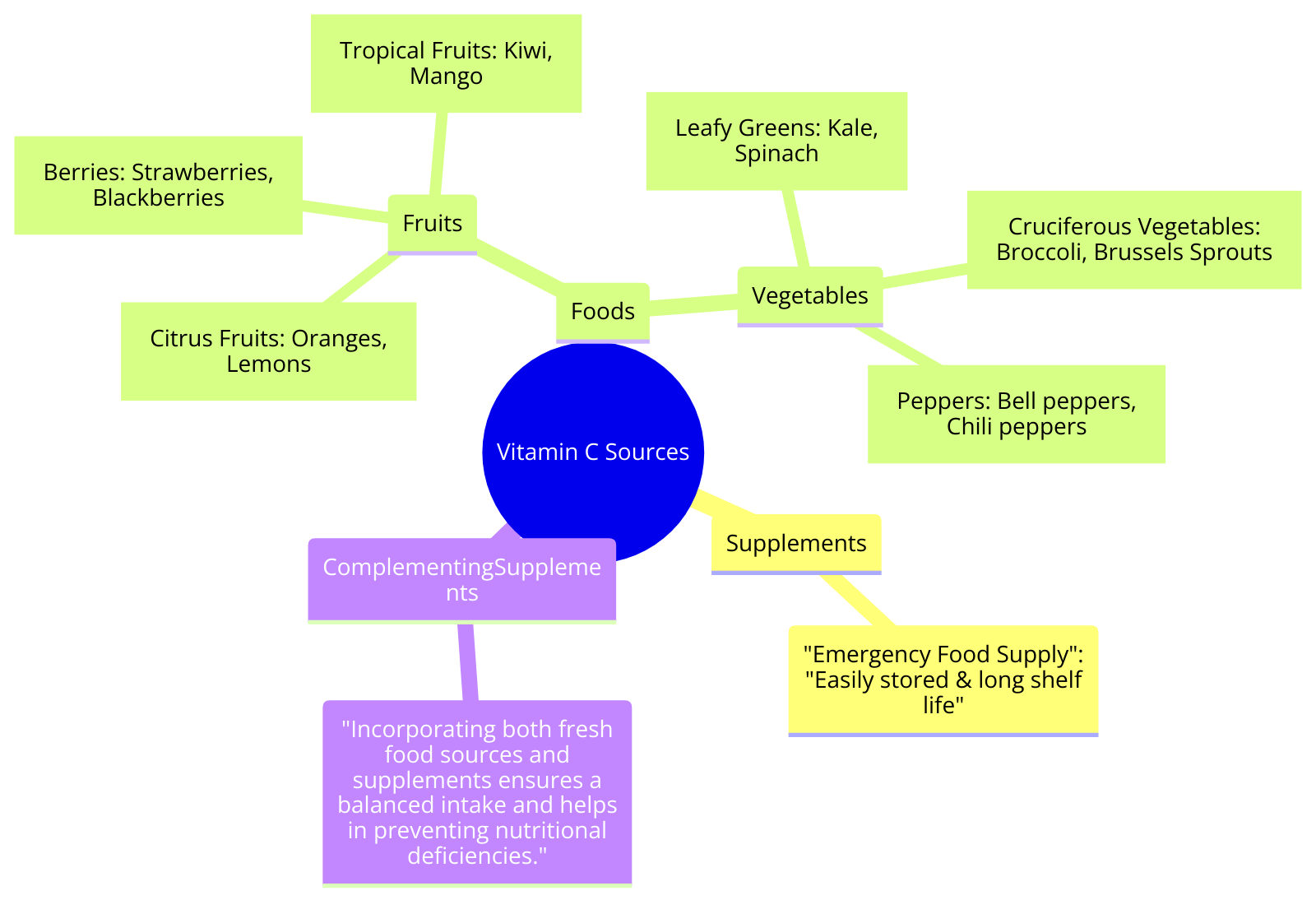
It’s a good idea to store vitamin supplements to ensure you have the nutrients you need when food options are limited.
| Vitamin | Shelf Life (Identical Storage Conditions) | Stability Challenges |
|---|---|---|
| Vitamin C | 1-2 years | Susceptible to oxidation and heat degradation |
| Vitamin A | 2-3 years | Sensitive to light and air exposure |
| Vitamin D | 2-3 years | Susceptible to degradation in humid conditions |
| Vitamin E | 2-3 years | Vulnerable to oxidation |
| Vitamin B12 | 2-3 years | Sensitive to light and moisture |
The exception of vitamin C when compared to other expired vitamins is its stability and immune benefits.
Storing Vitamin C for Maximum Potency
One challenge with storing vitamin supplements is maintaining their effectiveness over time.
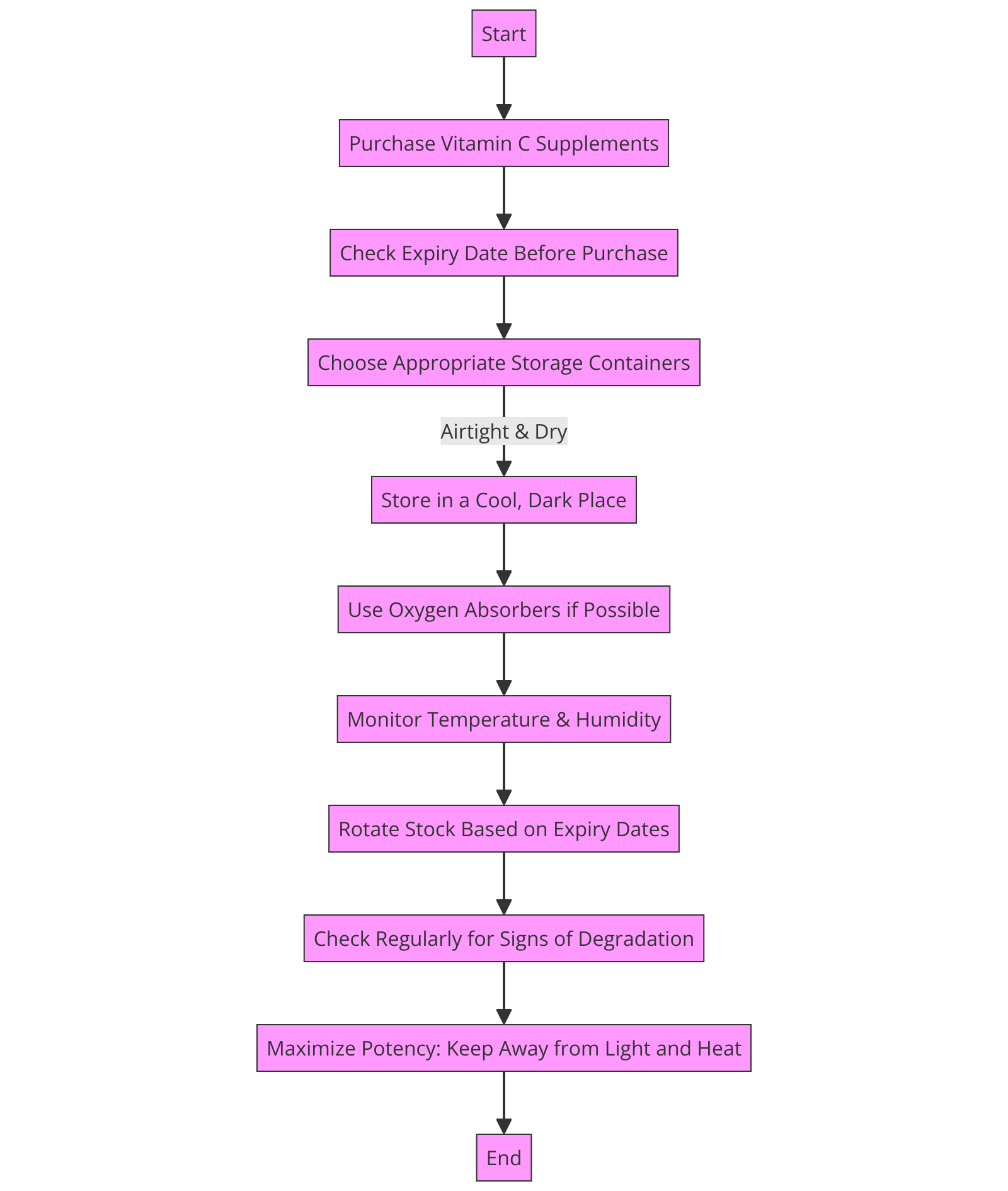
To maximize the life of vitamin and nutritional content in your stored supplies, follow these tips:
- Store vitamin C supplements in a cool, dark place to prevent degradation.
- Consider rotating your emergency food supplies to use up older items and ensure freshness.
- Include dehydrated fruits and vegetables rich in vitamin C alongside supplements for a balanced approach.
Comparing Supplement Forms for Extended Shelf Life
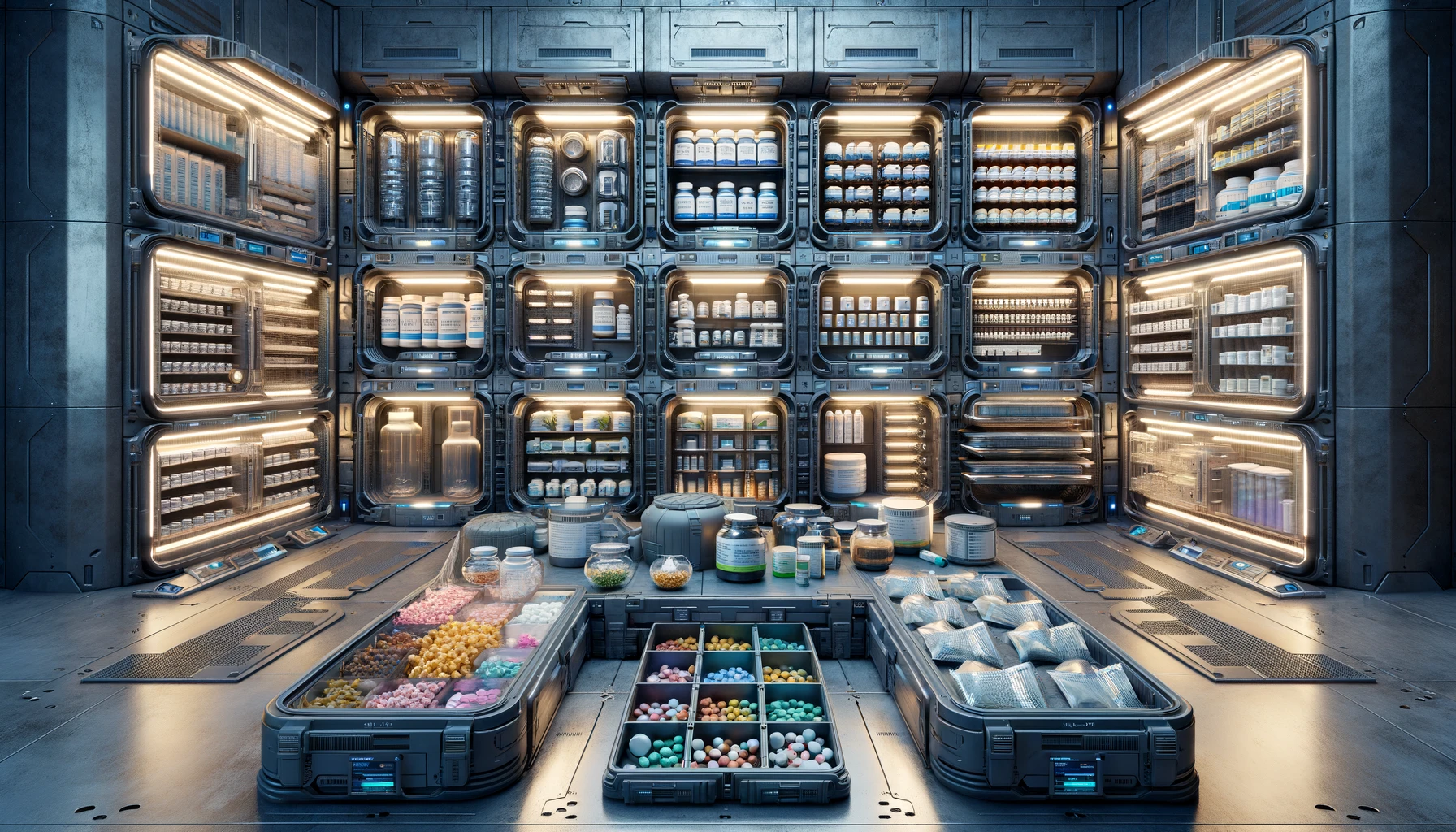
Choosing the Right Supplements
When it comes to selecting supplements to ensure you get the nutrients you need, considering their shelf life is crucial.
Opt for supplements that can last as long as beans and rice if stored correctly.
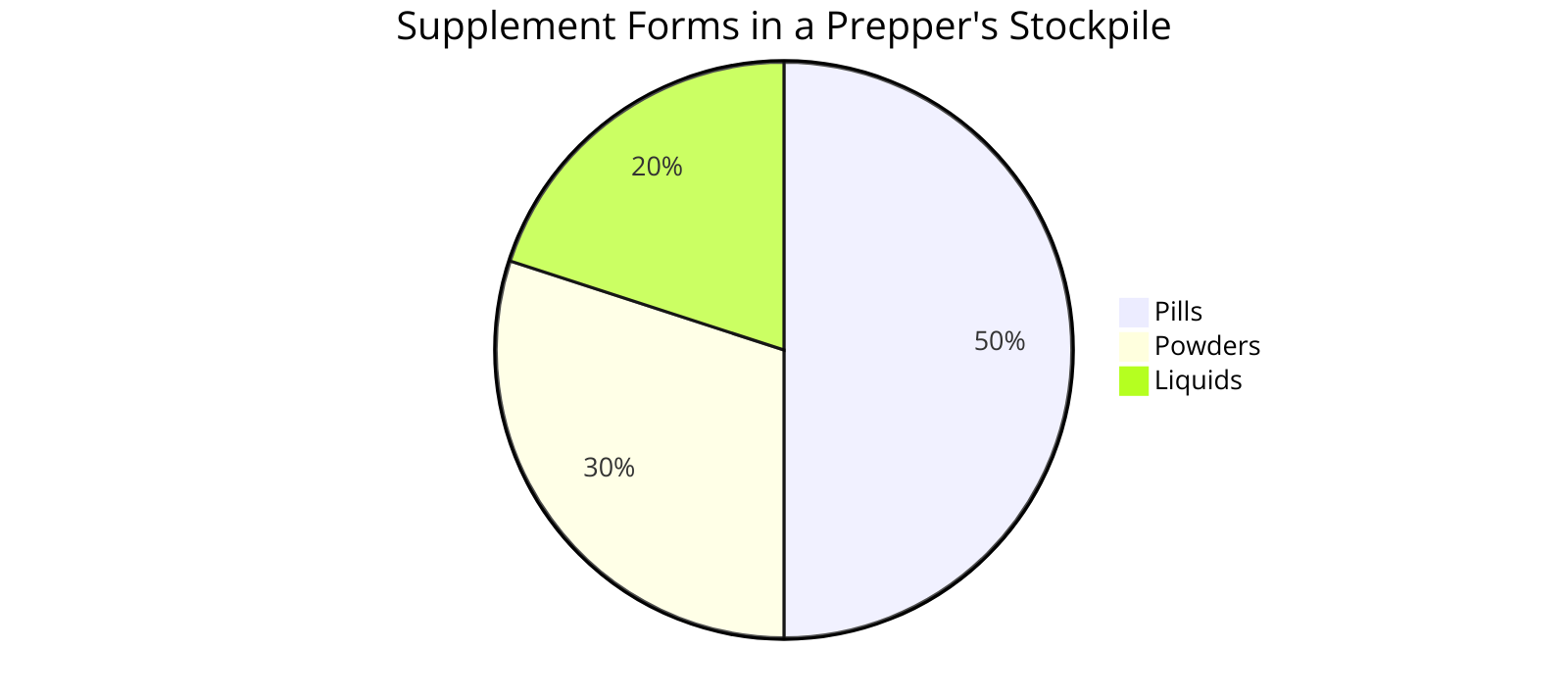
Pills typically have a longer actual usable shelf life compared to liquid forms due to less exposure to oxygen.
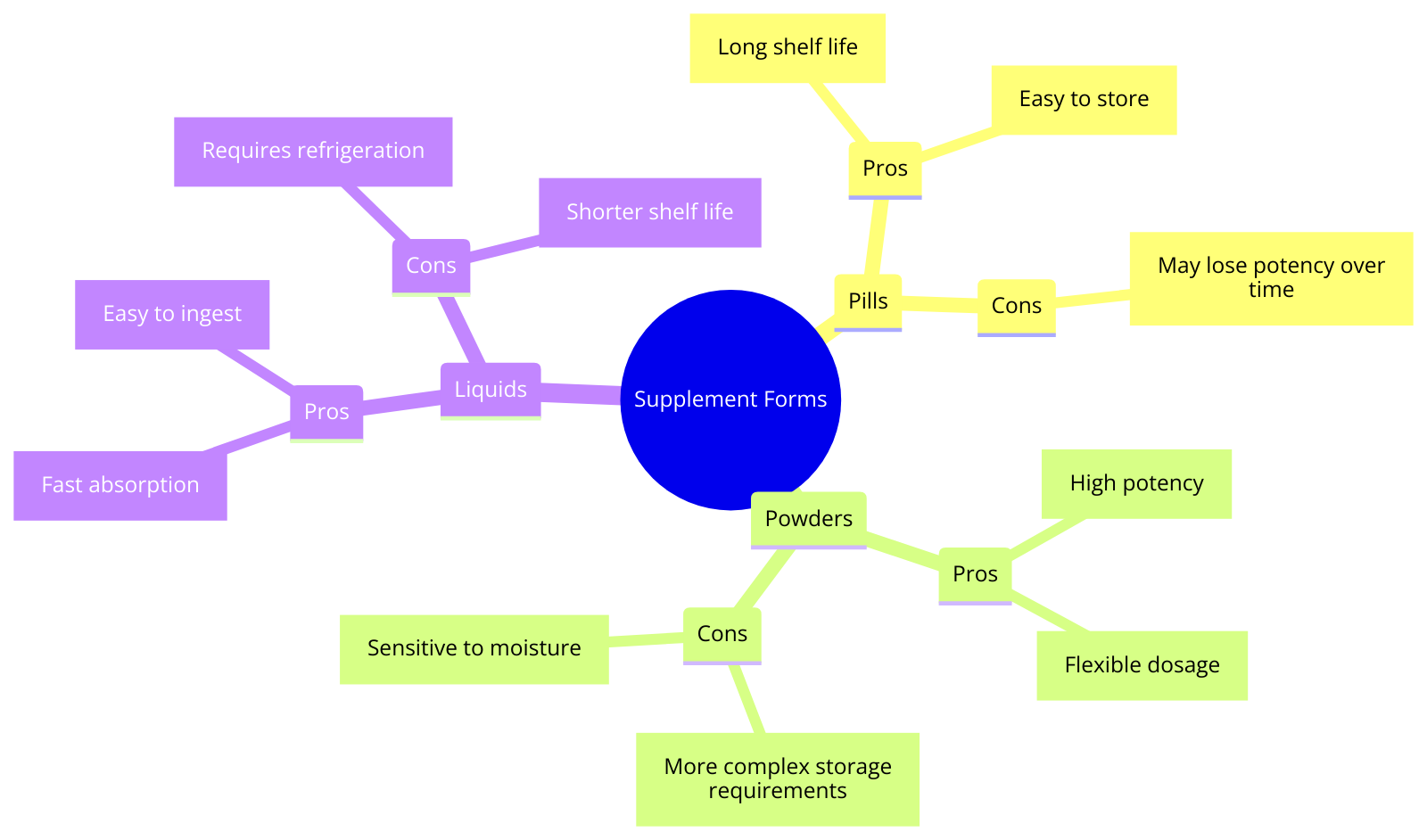
Best Practices for Storage
To make sure you are maximizing the longevity of your supplements, keep them away from light and heat, in a cool, dark place.
Avoid storing them near fruit, as the ethylene gas released can degrade certain vitamins.
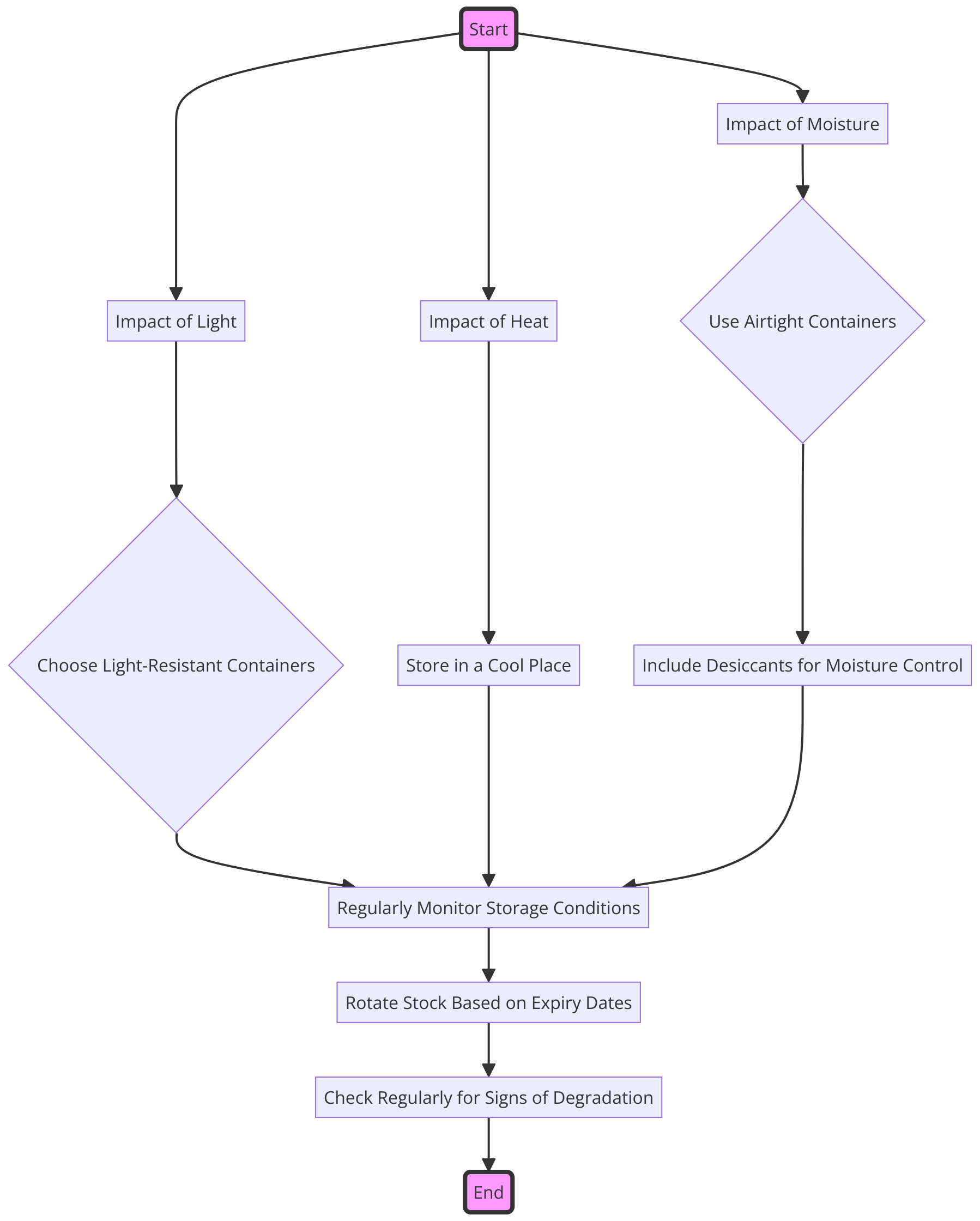
Seal the container tightly after each use to minimize exposure to oxygen.
Remember that even if a supplement is past its expiration date, it may still be effective for some time if stored properly.
| Supplement Type | Improper Storage Condition | Effects Over Time |
|---|---|---|
| Vitamin C | Exposure to sunlight and heat | Decreased potency due to oxidation |
| Omega-3 fatty acids | Exposure to air and light | Rancidity, loss of potency |
| Probiotics | Exposure to moisture and heat | Reduced viability of live cultures |
| Multivitamins | Exposure to high humidity | Degradation of vitamins and minerals |
| Herbal supplements | Exposure to moisture and temperature fluctuations | Loss of potency due to degradation of active compounds |
| Protein powders | Exposure to moisture and high temperatures | Spoilage, decreased protein content |
| Calcium supplements | Exposure to moisture | Formation of calcium carbonate, reduced absorption |
| Iron supplements | Exposure to air and moisture | Oxidation, decreased bioavailability |
Vitamin Storage Myths Debunked: What Truly Works

Storing l-ascorbic acid powder for long-term storage
When it comes to preserving l-ascorbic acid powder for extended periods, many believe that storing it in its pure form is the best approach.
However, relying solely on the powder may not be the most sustainable solution in emergency situations.
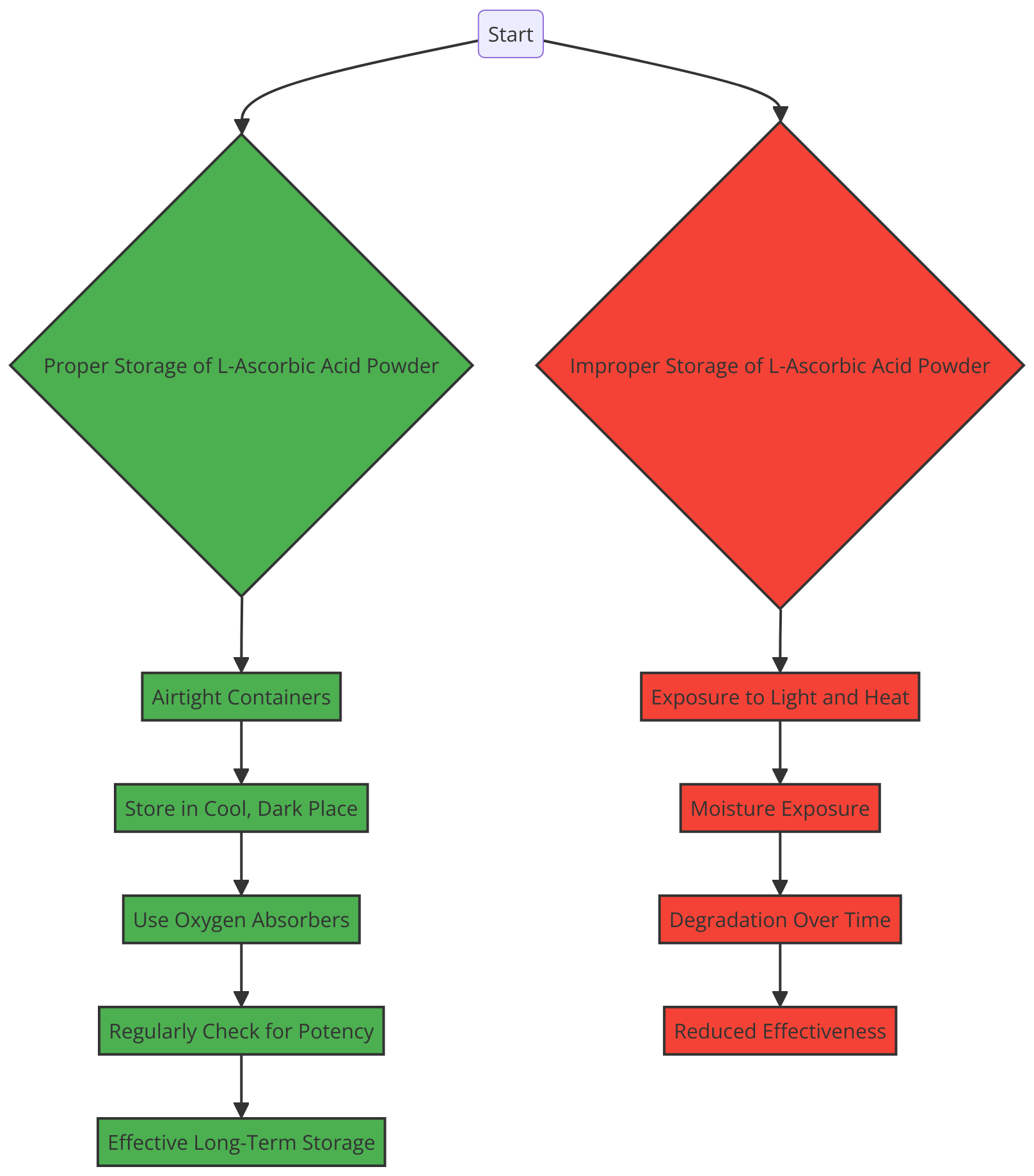
Instead, consider encapsulating the powder to ensure its potency over time.
Which supplements are best for long-term storage?
While fresh produce like tomatoes, wheat, and lentils are valuable sources of essential vitamins, relying solely on these perishable items for extended periods can be risky in scarce circumstances.
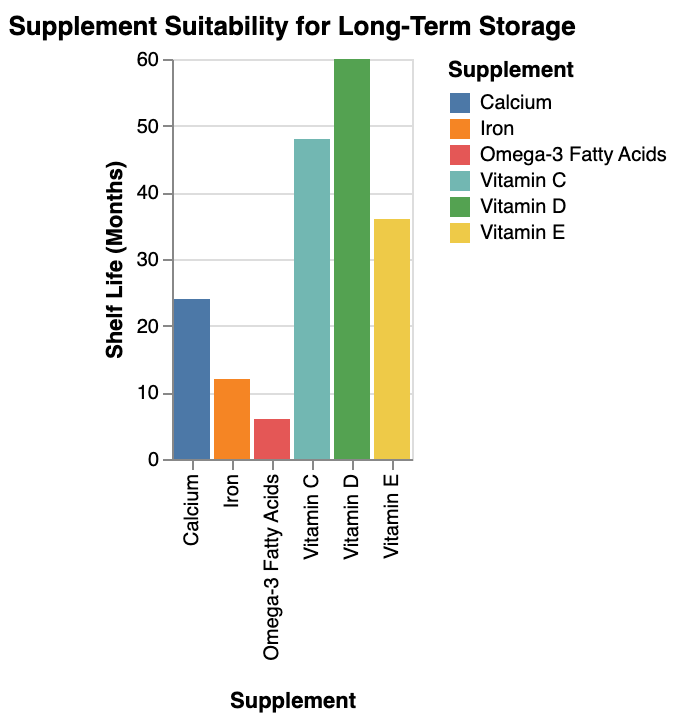
Opting for supplements that contain these essential nutrients can provide a more reliable solution for ensuring your body can absorb the necessary vitamins, especially when fresh foods are not available.
Prepper’s Guide: Vitamins to Stockpile for Emergency Readiness

Building Your Emergency Vitamin Stockpile
When it comes to preparing for emergencies, stocking up on essential vitamins is just as crucial as storing food and water.
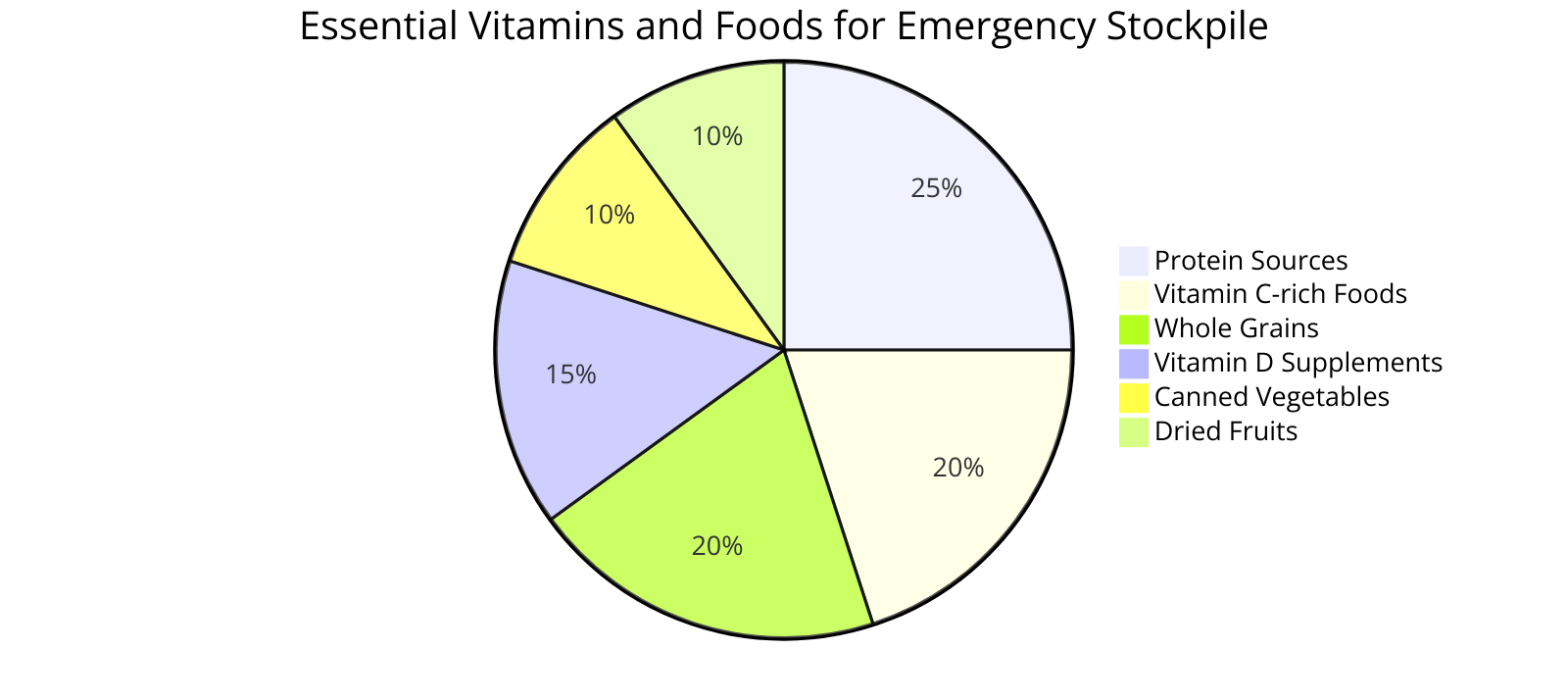
Incorporating a variety of nutrient-rich foods into your emergency supplies ensures that you can meet your nutritional needs even in challenging circumstances.
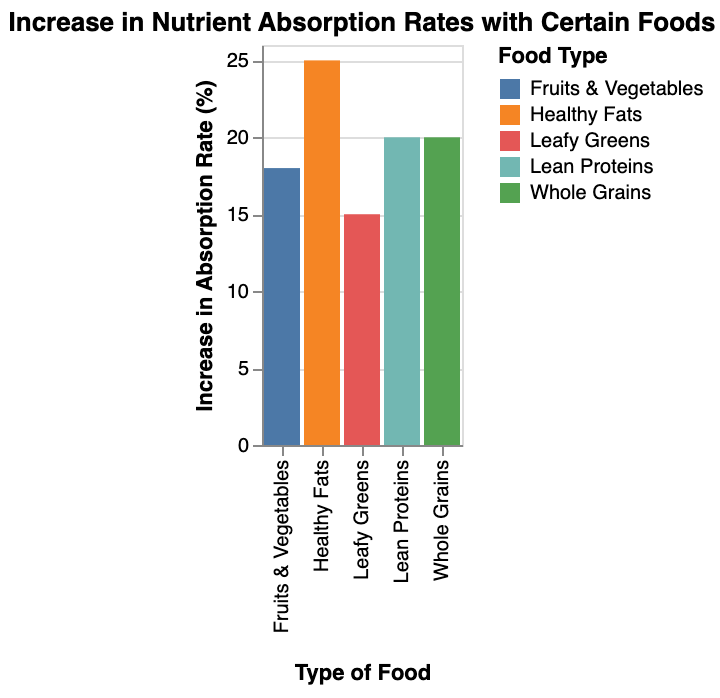
Consider including items like green peas, whole grains, potatoes, and yogurt in your stockpile for a diverse range of vitamins and minerals.
Prioritizing Vitamin Stability
As a speaker on emergency readiness, I always stress the importance of maintaining the adequate levels of vitamins in your storage.
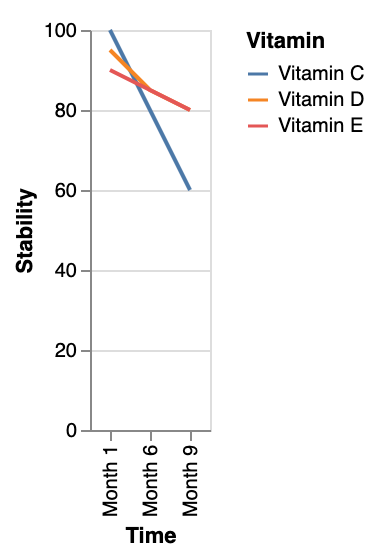
Opt for supplements that have a longer shelf life to ensure their potency over time.
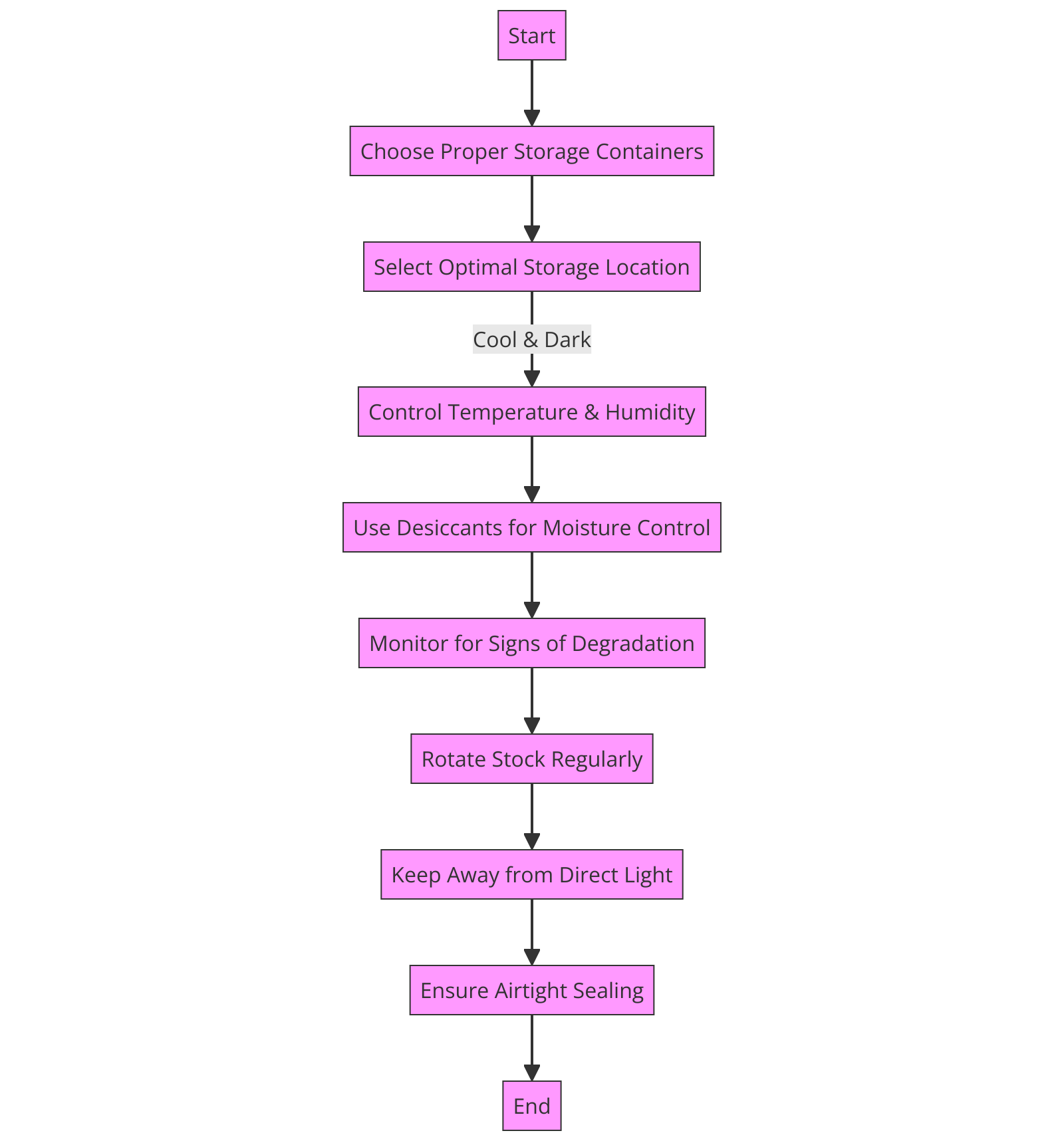
Look for different forms of supplements that can withstand varying storage conditions and choose wisely based on your emergency setup.
More Resources:
- The Provident Prepper: Offers insights on the shelf life of vitamin supplements and ideal storage conditions.
- Build a Stash: Provides a comprehensive guide on the long-term storage of vitamins, emphasizing the importance of storage conditions and container types.
- Primal Survivor: Discusses factors affecting vitamin shelf life and offers tips for storing vitamins long-term.
- Church of Jesus Christ of Latter-day Saints: Explains the use of oxygen absorbers for food and vitamin storage.
- Deseret News: Highlights ways to store vitamin C without stockpiling fresh produce, useful for long-term planning.


